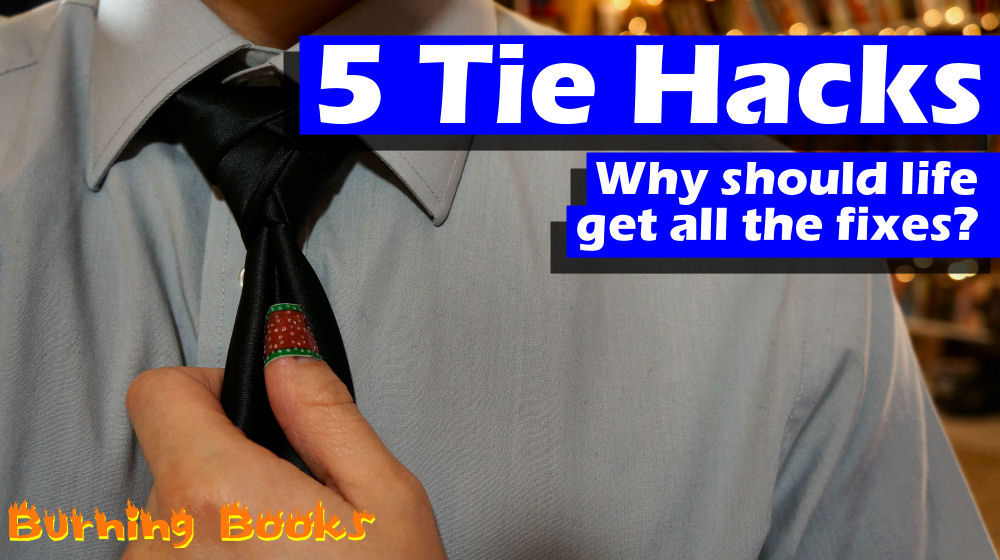Should You Feel Bad for Playing a Videogame Created with Crunch?
Hey Future Caleb, I know it’s been a long time since we talked, but my silence should be expected. When you agree to go halfsies with your past self on a timeshare, and then refuse to pay up when you realize that a timeshare means we’re splitting the use of a dirty beach condo and it doesn’t mean that we’ll be sharing the same timeline so as to allow you to live once again with arms and legs, you can expect me to be a bit mad. Yes, I agree that considering our impossible dialog we have going here means that time-based term confusion is inevitable, but come on, if humanity really invented a way to exchange lives across time and space, we’d come up with a much better name than timeshare…like, swap, life swap…okay, timeshare is a pretty good name. You’re right to have been confused.
But that’s not why I’m reaching out to you today. I want to talk about why you should feel bad buying a videogame. Okay, not really, that may be an unfortunate side effect. So, I just finished a really great book called Significant Zero: Heroes, Villains, and the fight for Art and Soul in Video Games by Walt Williams, and some interesting ideas came up about the crunch periods in videogame development. Crunch time, or just Crunch, is the period of a game’s development in which staff are working 2-3 times as many hours as normal, usually leading to work-life imbalance at best and severe mental and physical health issues at worst. One surprising tidbit I learned: Crunch is not responsible for the lack of time and attention needed to properly spell videogame, as a compound word. I’ll blame your editor, Walt. Because I don’t want to stop believing in you. And don’t cite Google. Google is wrong, too.
I’m not here to defend or condemn Crunch. For the purposes of this video, I’m just going to say overall the damage caused by Crunch outweighs the good. Lots of articles have been written with whistle-blower sources recently. Crunch is real and it can be damaging.
I want to talk about how we, as videogame consumers, should approach Crunch. We are, after all, the wallets. It seems easy to suggest we simply boycott games that benefit from abusive labor practices, but that would mean boycotting every AAA videogame. Really. Every single one of them. That sounds harsh, as we gamers love games, but it is technically doable, though I cannot imagine the habit I’d have to adopt to replace my crippling gaming habit. [long beer drink].
So, we could simply not buy the games, but we have to consider which people would suffer as a result. Would studio heads–those ultimately responsible for their employees’ working conditions–would they lose their jobs. Not likely. And even if they did, the multi-million dollar salaries and bonuses would certainly cushion the blow.
The workers would suffer. The project managers, the developers, the artists, all the people who actually make the games and bring them to the world. Those people suffer. So it’s for them and their families that I pre-ordered Cyberpunk 2077.
I’m only half-joking. The problem with loving something, like videogames, is that even when confronted by evidence of its evil, the thing will be defended by those who love it. It’s the reason I’ll keep buying AAA games. It’s the psychological impetus behind fanboy and fangirl-ism. It’s the reason I let my cat live despite her being evil. I’m not giving you any examples. Just know that she’s evil.
But what Walt “one word” Williams says about Crunch is incredibly interesting, as we rarely hear a defense of the practice. The entire book is great, but especially so for the chapter titled “Development Never Changes,” a title riffing on the quote “War Never Changes” from the Fallout franchise, a re-purposing that shouldn’t go unacknowledged considering Walt Williams is a military vet himself and is perhaps most well known for writing Spec Ops: the Line. For him to compare game development to war is a very conscious decision, not just an opportunity to cleverly appropriate a quote. Or maybe it is. I don’t know the guy. He seems cool, though.
First, Williams does acknowledge that:
“Crunch is exploitative (true). Employees feel their jobs are at risk if they resist the will of Crunch (also true). And, most damning of all, Crunch isn’t necessary (so true it hurts).” pg 223
But less than a page later, he undercuts this truth with some very positive remarks about Crunch, saying:
It’s only crunch if you don’t want to do it, further explaining that:
“Crunch is a natural occurrence brought on by the creative process. Driven by passion, artists give themselves entirely to their art. When art exists in a collaborative medium, Crunch will always deal collateral damage.” pg 224
He actually likes Crunch. He feels energized by it.
“Being an artist is not easy,” he says. “Selling your soul will not always bear a profit.” (pg 228)
As a gamer, should I be okay with dismissing the negatives as quickly as Williams does? I don’t know. It feels a bit like justifying one’s own racism by claiming they have a black friend.
I want to say, no, it’s not okay to dismiss Crunch based on Williams’ justification of art as a passion enterprise, poetic though his justification may be. Keep in mind, the reason Williams is able to write a memoir is that he’s a unique person with a unique story. His experience should not be the lens through which we see and judge an entire industry.
But a person has an amazing capacity to rationalize anything when he benefits from it. If a person simply likes saying the n word, they are definitely going to claim that one black guy at work is a “friend” and insist that friend is okay with saying the n word. And the next time I read a story about Rockstar’s culture of Crunch, I’m definitely going to cite Walt as my token game writer friend who’s okay with the c word. I’m not proud of it. But I don’t know what else to do.
Maybe in your time, Future Caleb, game developers have unionized like other major facets of the entertainment industry. Maybe gamers play more games from independent studios that aren’t under the same shareholder pressures as AAA studios. Maybe because people in the future are only heads in jars, videogames and reality are one-and-the same, meaning the laws that once ensured the safety of construction crews apply equally to those who construct our virtual roads. And maybe, just maybe, you’ve paid me for your part of the timeshare.
I’m just kidding. Of course you haven’t paid your share. You’re a jerk.
Mentioned:
Music Credits
- 8bit Dungeon Level Kevin MacLeod (incompetech.com), Licensed under Creative Commons: By Attribution 3.0 License, http://creativecommons.org/licenses/by/3.0/


